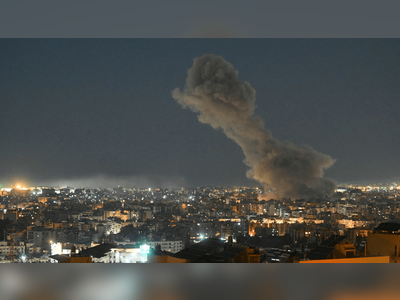
Israeli Minister Threatens to Resign Over Proposed Gaza Ceasefire
National Security Minister Itamar Ben-Gvir stands against ceasefire agreement citing security concerns.
In a tense escalation within Israeli politics, Itamar Ben-Gvir, Israel's National Security Minister and leader of the far-right Otzma Yehudit party, has threatened to resign from Prime Minister Benjamin Netanyahu's government if it proceeds with a proposed ceasefire agreement with Hamas.
In a press conference, Ben-Gvir labeled the ceasefire deal as 'reckless' and declared that his party's six seats in the 120-seat Knesset would be withdrawn, although this would not eliminate Netanyahu's parliamentary majority.
The proposed ceasefire marks a pivotal point in the ongoing Israel-Gaza conflict.
While the exact details remain under wraps, the agreement purportedly involves a temporary halt to hostilities, alongside complex prisoner exchanges and humanitarian provisions aimed at Gaza's devastated population.
The ceasefire plan arrives amid an international push for peace, facilitated considerably by Qatari mediation.
However, internal political pressures within Israel are mounting as far-right factions express dissent, prioritizing security concerns over diplomatic resolutions.
Prime Minister Netanyahu, who holds a delicate majority in the Knesset, faces unprecedented challenges.
On the one side, he is striving for a diplomatic resolution to the long-standing conflict that has embroiled Gaza in relentless cycles of violence.
On the other, his government allies, specifically right-wing factions, perceive such measures as endangering Israel’s security and undermining hardline policies.
Adding to the complexity, the ceasefire proposal ties into broader international dynamics.
U.S. involvement, under President Biden’s administration, has been significant, pushing for resolutions that relieve humanitarian crises in the region.
Yet, any failure of the ceasefire to deliver tangible security and stability outcomes might strengthen more radical elements on both sides.
Meanwhile, families of hostages held by Hamas are in anguish over the delays in the ceasefire proceedings, waiting with bated breath for news of their loved ones.
In Israel, voices of protest echo from regions like Tel Aviv and Jerusalem, where demonstrations have arisen demanding clarity and action on hostage releases as outlined in the agreement.
This dramatic moment in Israeli politics and Middle-Eastern geopolitics underscores the fragile nature of alliances around wartime diplomacy and the long-standing cycles of conflict.
As tensions simmer, the immediate future remains uncertain, with high stakes for all parties involved.
In a press conference, Ben-Gvir labeled the ceasefire deal as 'reckless' and declared that his party's six seats in the 120-seat Knesset would be withdrawn, although this would not eliminate Netanyahu's parliamentary majority.
The proposed ceasefire marks a pivotal point in the ongoing Israel-Gaza conflict.
While the exact details remain under wraps, the agreement purportedly involves a temporary halt to hostilities, alongside complex prisoner exchanges and humanitarian provisions aimed at Gaza's devastated population.
The ceasefire plan arrives amid an international push for peace, facilitated considerably by Qatari mediation.
However, internal political pressures within Israel are mounting as far-right factions express dissent, prioritizing security concerns over diplomatic resolutions.
Prime Minister Netanyahu, who holds a delicate majority in the Knesset, faces unprecedented challenges.
On the one side, he is striving for a diplomatic resolution to the long-standing conflict that has embroiled Gaza in relentless cycles of violence.
On the other, his government allies, specifically right-wing factions, perceive such measures as endangering Israel’s security and undermining hardline policies.
Adding to the complexity, the ceasefire proposal ties into broader international dynamics.
U.S. involvement, under President Biden’s administration, has been significant, pushing for resolutions that relieve humanitarian crises in the region.
Yet, any failure of the ceasefire to deliver tangible security and stability outcomes might strengthen more radical elements on both sides.
Meanwhile, families of hostages held by Hamas are in anguish over the delays in the ceasefire proceedings, waiting with bated breath for news of their loved ones.
In Israel, voices of protest echo from regions like Tel Aviv and Jerusalem, where demonstrations have arisen demanding clarity and action on hostage releases as outlined in the agreement.
This dramatic moment in Israeli politics and Middle-Eastern geopolitics underscores the fragile nature of alliances around wartime diplomacy and the long-standing cycles of conflict.
As tensions simmer, the immediate future remains uncertain, with high stakes for all parties involved.












